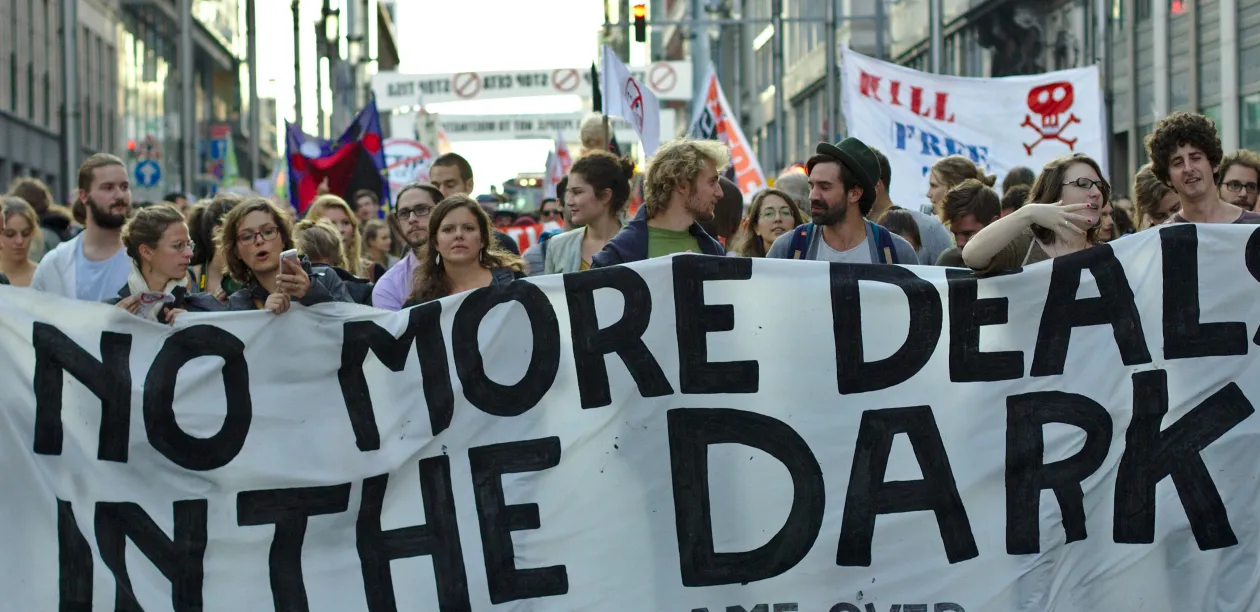Trade and the Labour movement in the post-pandemic environment

The “free trade” regime has long been seen as an obstacle to the development of countries in the Global South and to supporting working people’s real needs. The assumed benefits of free trade for people in the Global North too have come increasingly under scrutiny.
Does COVID-19, which has demonstrated the fragility of the global free trade regime, open up new space for labour movements in their struggles for an alternative regime organised around principles of trade justice?
In May 2021 War on Want joined a group of academics, trade unionists and activists from across the globe and convened by labour rights researchers from the universities of Nottingham and Oxford Brookes to explore how the labour movement has approached the challenges presented by free trade, and how the movement might address current and future challenges in the post-Trump, post-pandemic era. It was a broad ranging discussion, with inputs on the history of the UK Labour Party’s trade policy, on the effectiveness of the EU's labour standards provisions in its FTAs, and the opportunities for collective bargaining approach to trade to name just a few.
Below you can find a short summary of each of the papers. It is our hope that the community of researchers, activists and trade unionists continuing to exchange views and collaborate on these issues can support the labour movement in its work towards a trade policy that has working people everywhere at its centre.
The Problems of Neo-liberal Trade Policy
- Andreas Bieler - The Global Trade Regime and Alternatives: conceptualising the agency of labour.
- Kayhan Valadbaygi – Labour and the Future of Free Trade: Critical Review of Mainstream Approaches.
- Patricia Ranald – The Pandemic exposes flaws in neo liberal trade policy and presents opportunities for alternatives.
- Leah Sullivan – Trading away our jobs 2.0.
The Labour movement and Trade Policy
- John Hilary – A Contested Inheritance: The Labour Party, Institutional Internationalism and Free Trade.
- Li Eriksdotter Andersson – Swedish unions and free trade: a complicated love story.
- Pablo Sanchez - Free Trade and Trade Unions: a love and hate relation
- Stephen Hurt – African labour movements and their response to the African Continental Free Trade Area.
EU trade policy and labour
- Jan Orbie and Antonio Salvador M. Alcazar III - EU social trade sanctions: a post-development critique.
- Oliver Prausmüller – Covid-19 and EU´s recent call for more “resilience”: Trade related conflicts over the corporate capture of public services and intellectual property rights revisited.
- Ben Richardson - The EU Trade-Labour Linkage: Present Limits, Future Possibilities.
- Benjamin Bürbaumer – Capital bias in technical convergence liberalization talks.
Trade Agreements and the role of Labour Clauses and Social Chapters
- Christoph Scherrer – Alternative Global Institutional Framework for Cross-Border Economic Activities. A Labor-Centered Perspective.
- Andrew Waterman and Ben Norman – Moving beyond the social clause: Opportunities for a collective bargaining approach to trade in the post-pandemic global economy.
- Diego Azzi - Historical patterns and present shifts? Trade union action and the EU-Mercosur free trade agreement.
- Jörg Nowak – From RCEP to the EU China Comprehensive Agreement on Investment: Do free trade agreements with China focus on political or on economic objectives?
